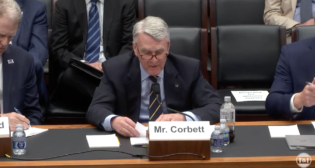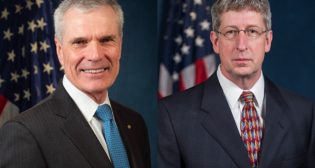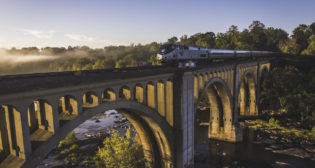
Can alchemists turn dross into gold?
Written by AdministratorTransportation in 2011 will be a casualty in the war between Republicans and Democrats. Transportation projects are expensive and Congress in the past has committed huge sums to highway construction and maintenance, inland waterway development, and airport projects.
The battle between anti-tax ideologues and political pragmatists can be expected to go on unabated throughout 2011 and 2012.
The election offered good and bad news for railroads. Observers consider Sen. Jay Rockefeller’s Surface Transportation Board Reauthorization Act (S.2889) to be dead, lifting the threat of imminent rail reregulation. They still face administrative actions by the STB, but STB is limited in how much new regulation it can impose.
Among the negatives is the indefinite postponement of any consideration of the railroads’ long sought Investment Tax Credit for capital spending that increases rail capacity. Similarly, the separate program that extends investment tax credits to short line railroads that expired at the end of 2009 may not be renewed unless the lame duck congressional session takes it up (unlikely at this writing) or includes it with other must-pass legislation.
The latest iteration of the surface transportation authorization appears headed for a two-year deferment with highway spending continuing at current—and inadequate—levels until after the 2012 presidential election. That leaves us stuck with SAFETEA-LU. The $244.1 billion multi-year program expired at the end of 2009 but has been kept alive at its original authorization level by continuing resolutions, a Congressional tactic to avoid shutting down programs when lawmakers cannot agree on extension terms. No permanent replacement is on the horizon, and the program will limp along until 2013 when the next Congress comes to Washington.
Infrastructure spending is essential, but the likelihood of passing tax increases to pay for higher spending as the nation heads into a presidential election is considered nil. The same can be said of the railroad industry’s drive to have the FRA pay some of the cost of the unfunded federal mandate that railroads install PTC within five years.
Transportation spending programs and issues are non-partisan, neither party having a transportation policy. A principal feature of what used to be called simply “the highway bill” is that there invariably are plenty of earmarks that attract legislators from both sides of the aisle. To the degree that Tea Party adherents and other legislators who abhor deficit spending draw a bead on transportation, the fate of programs may be decided not on their merits but by Congressional posturing over deficit spending.
Public-private partnerships are not a panacea. A stream of revenue must be present before investors will commit capital. Doubling spending while refusing to increase taxes requires a belief in alchemy, the Middle Ages belief that base medals could mutate into gold. Congress already has transferred several billions from the general fund to the Highway Trust Fund, as existing taxes do not produce enough revenue to support current spending.
Survival is every politician’s instinct and it is hard to see the new Congress approving higher taxes for transportation—especially when they know the adage: Freight doesn’t vote.
Railroads will accept anticipated gridlock with equanimity. Being privately owned, they can fund needed capacity, limited only by their access to capital. And to the extent that highways become even more congested and require even more maintenance, railroads will benefit as shippers and truckers flock to intermodal.
Railroads can make common cause with truckers in calling for more spending on highways and bridges because the growth of intermodal means a large increase in use of highways by drayage operations between intermodal facilities and those of shippers and consignees.



